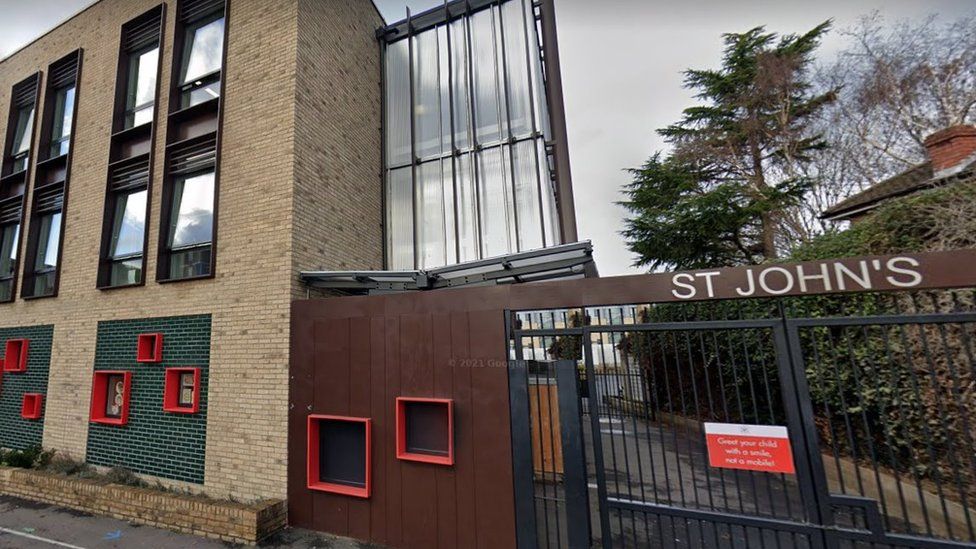ARTICLE AD BOX
 Image source, Google
Image source, Google
The child went to St John's in Ealing
A fourth child has died after contracting Strep A, the UK Health Security Agency (UKHSA) has confirmed.
The latest death from the bacterial disease was of a child who attended St John's School in Ealing, west London.
It has also been confirmed a boy aged four from High Wycombe, Buckinghamshire died with Strep A last month.
The two other children to have died were primary school pupils in Penarth, Vale of Glamorgan, and in Ashford, Surrey.
The Group A Streptococcal (GAS) infection can cause scarlet fever.
However, the UKHSA told the BBC it was important people understand scarlet fever is a mild illness and the GAS bacteria which causes it only rarely becomes invasive, leading to serious illness.
The UKHSA said it was working with Ealing Council to provide public health advice and support to the school.
What is Strep A?
Image source, BSIP/Getty Images
- Group A streptococcal (GAS) infection is caused by strains of the streptococcus pyogenes bacterium
- The bacteria can live on hands or the throat for long enough to allow easy spread between people through sneezing, kissing and skin contact
- Most infections cause mild illnesses such as "strep throat", scarlet fever or skin infections
- The bacteria rarely infects healthy people but if it does get into the body, causing serious and even life-threatening conditions it is known as invasive GAS (iGAS).
Dr Yimmy Chow, health protection consultant at UKHSA London, said: "We are extremely saddened to hear about the death of a child at St John's Primary School, and our thoughts are with their family, friends and the school community.
"Working with Ealing Council public health team, we have provided precautionary advice to the school community to help prevent further cases and we continue to monitor the situation closely."
The UKHSA said the symptoms of Group A streptococcal infection include a sore throat, fever and minor skin infections, and can be treated with a full course of antibiotics prescribed by a GP.
"In rare incidences, it can be a severe illness and anyone with high fever, severe muscle aches, pain in one area of the body and unexplained vomiting or diarrhoea should call NHS 111 and seek medical help immediately," Dr Chow added.
Follow BBC London on Facebook, Twitter and Instagram. Send your story ideas to hellobbclondon@bbc.co.uk
Related Internet Links
The BBC is not responsible for the content of external sites.

 2 years ago
58
2 years ago
58








 English (US) ·
English (US) ·